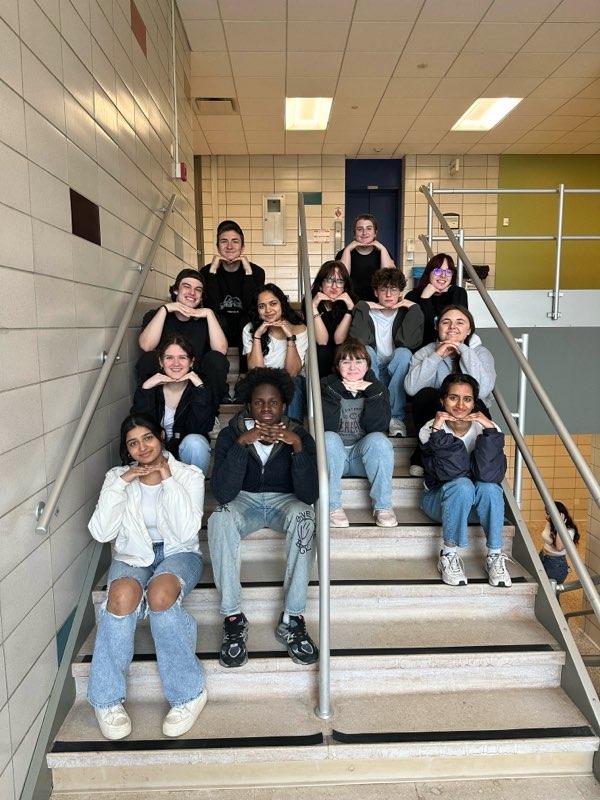Kent State Today followed a group of six Golden Flashes for the 2024-25 academic year, chronicling their efforts and successes during the fall and spring semesters. The students are at various places in their Kent State University academic careers and have shared their experiences throughout the year as they participate in our distinctive programs, research and global experiences.
Muna Koirala’s first year at Kent State University was an exercise in academic anxiety, and she’s willing to share her story in hopes that her struggles will help other students overcome their own.
Kent State Today followed Koirala, a rising sophomore in the College of Architecture and Environmental Design, during the 2024-25 academic year as part of its “Year With a Flash” series that chronicles an academic year for a group of students.
“I feel like I could have done a lot better,” Koirala said, summing up her year. “I am still committed to architecture.”

Koirala says she has "learned so much" about herself this year; she struggles with anxiety, time management and feeling overwhelmed.
“I lack discipline,” she admits. “I don’t know why I have so much trouble focusing.”
And yet, she still counts the year as a success, even though she didn’t bring in all the grades that she had hoped.
“I survived,” she joked. “And I’ve gotten out of my comfort zone a little more. I feel like I have been introduced to new opportunities and ways to improve things.”
Chris Tankersley, Ph.D., director of Kent State’s Academic Success Center within University College, said Koirala’s story is a familiar one.
“She is definitely not alone,” he said, “This is not an uncommon story that I hear.”
The Academic Success Center helps thousands of students each year with tutoring and academic coaching. Tankersley said the biggest challenge for his department is getting students to take the first step to ask for help.

“The help we provide is peer-based, so it’s students helping other students,” he explained. That may seem like an intimidating prospect for some students who are reluctant to admit to their peers that they don’t know something.
But Tankersley reassures, “This is a non-judgmental zone.”
Most students who are there to offer help typically use the center to get help themselves. “They’re not all 4.0 students,” he said, adding, “The tutors are often getting tutored.”
Koirala is the oldest daughter of Bhutanese immigrants who, to escape persecution, fled to Nepal, where she was born in 2005, and later immigrated to the United States. Growing up in Akron, Ohio, her household included her parents, two younger sisters and an extended family of grandparents and an uncle, so finding affordable housing where the family could live comfortably together was always a challenge, a reality that sparked Koirala’s interest in housing as a career.
While she never used the Academic Success Center, Koirala did seek help from her professors, fellow students and graduate students in architecture. Yet heeding their advice seemed the hardest hurdle of all for her.
“For one final project, the professor said we should be spending about four hours a day on it, so that we don’t feel overwhelmed,” Koirala explained. That advice, though, caused her more stress. “I just kept getting more overwhelmed worrying about what I should be getting done each day,” she said.

Koirala knew classmates struggled with similar problems, but watched as they kept going and worked through their issues.
“In my situation, I freeze up,” she said.
Koirala said she never took the time to contact the Academic Success Center, a comment that Tankersley often hears.
“We hear that from students,” Tankersley said. “They’ll say, ‘Well, I just don’t have the time for this.’ And my response is, ‘Well, maybe it’s worth the investment of a few hours of your time to make an impact down the road that is going to save you a lot of time.’”
Tankersley believes Koirala would be helped by working with one of the center’s academic coaches.

“A lot of times anxiety comes from a lack of time management skills and not being able to budget your time to set realistic parameters of how long something is going to take you, or how to set aside time for school, work, social life, and time for doing absolutely nothing, because that is always the thing that students forget about,” he said. “We call it zero time, meaning there is absolutely nothing planned.”
Koirala plans to use the summer to work on improving her habits, including eating better, getting more regular sleep and scheduling time with friends, knowing that the fall semester represents a fresh start.
“I’m here to stay,” she said. “I want to see how the second year goes.”
Her advice to incoming students: “Set boundaries for yourself to get stuff done and really take care of yourself because if you lose control of that, it starts going downhill really fast.”
Additional photos provided by Muna Kiorala.

